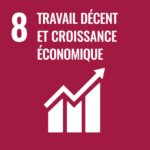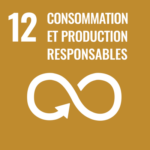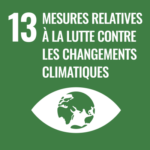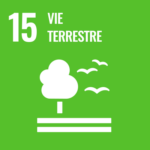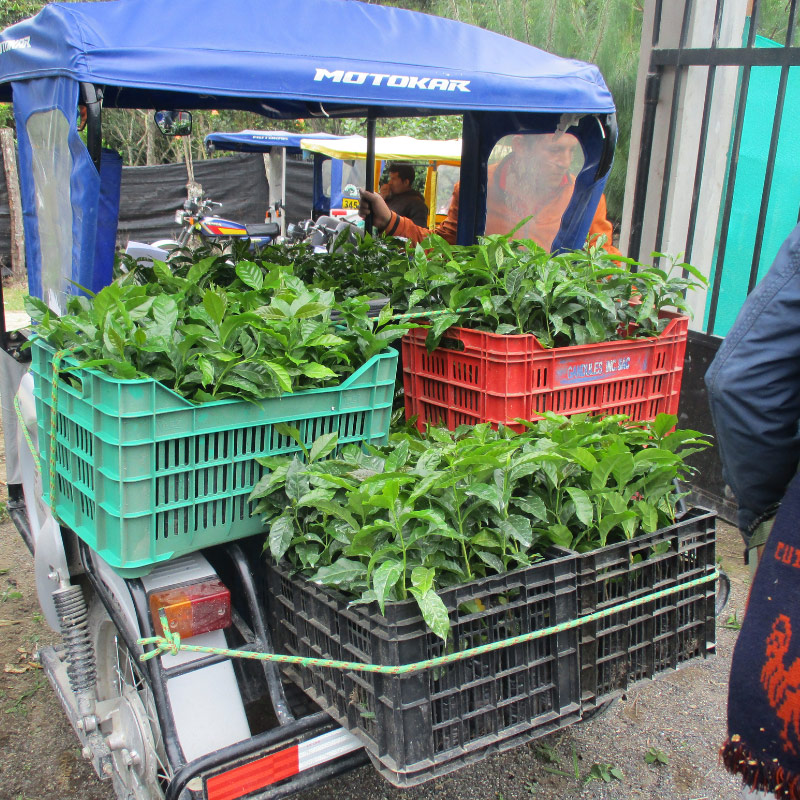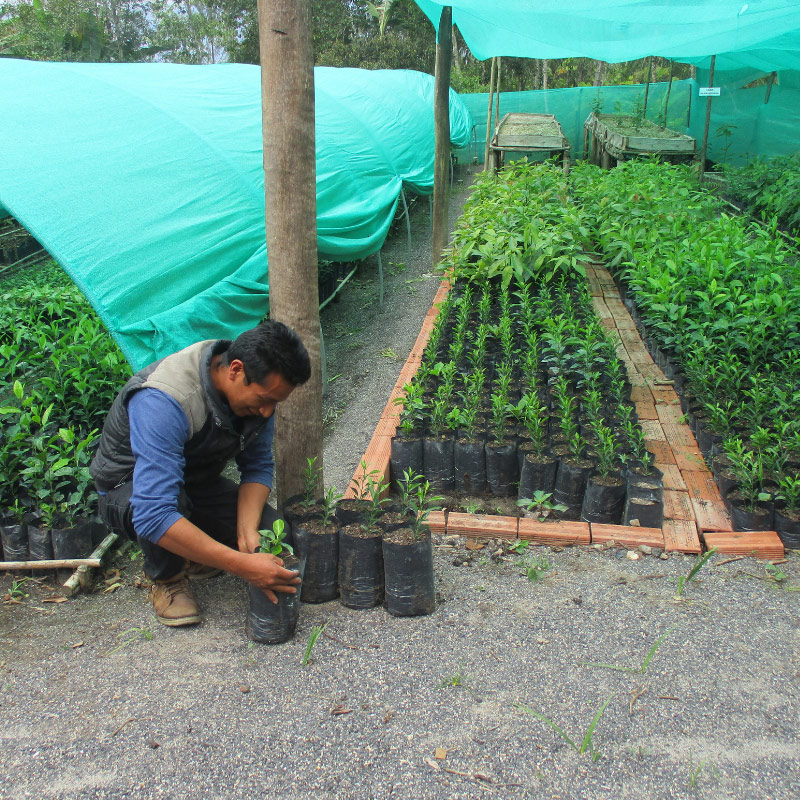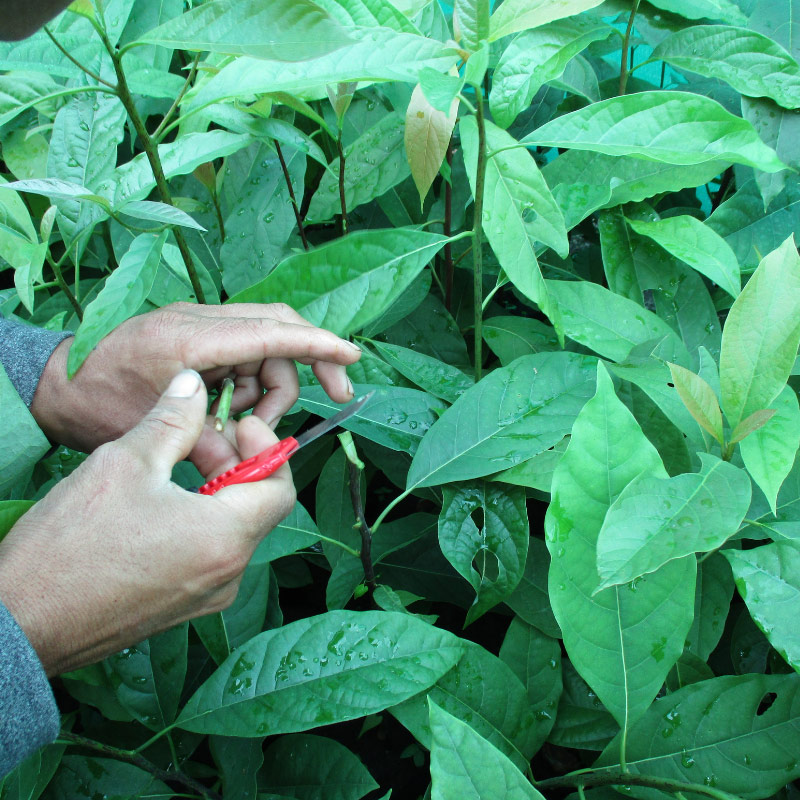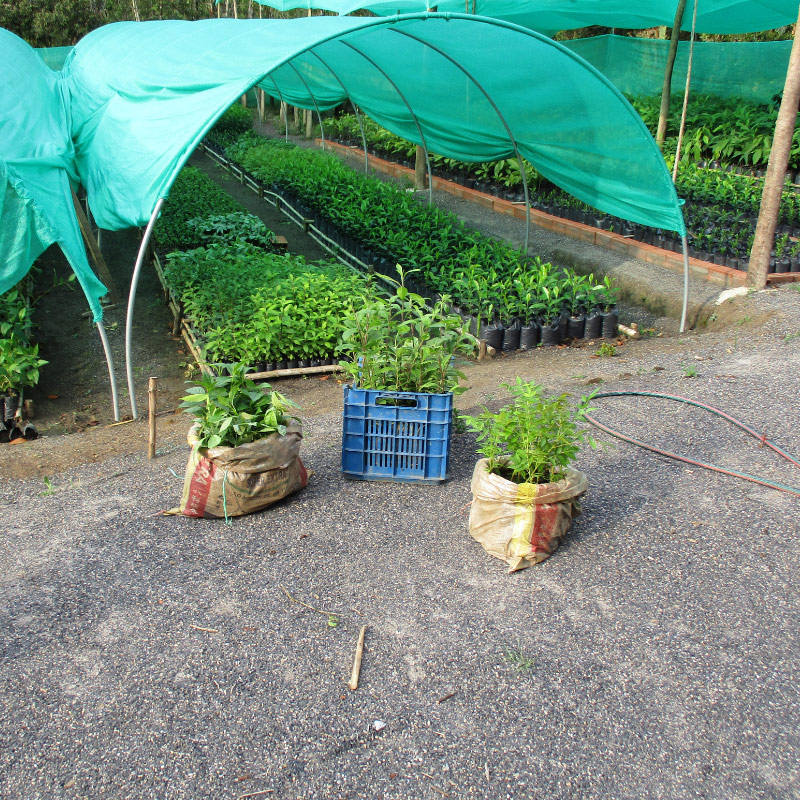
Our projects
Sustainable shade-grown coffee production
Project CUISCAF – Peru
On deployment
In the Amazonas and San Martin regions of Peru, agriculture remains one of the main causes of the destruction of forests and biodiversity habitats, particularly for birds. Among the crops responsible for deforestation, coffee is one of Peru’s main commodities, particularly for export.
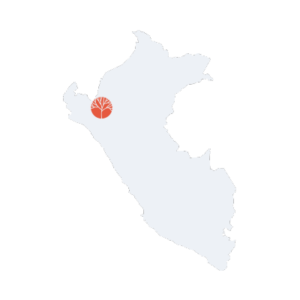
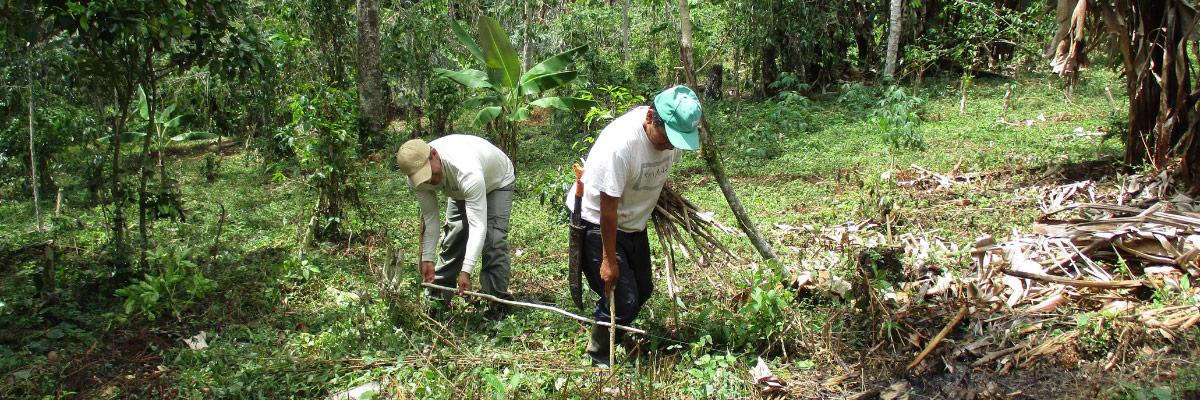
Context
Peru is home to the second largest area of Amazon rainforest in the world, and the fourth largest area of tropical forest. It is one of the most biodiverse countries on the planet, home to 70% of the world’s biodiversity. In particular, Peru is the third richest country in terms of birdlife, with 1,857 species.
However, Peru’s biodiversity and ecosystems are currently under serious threat. 119 species of Peruvian birds are on the IUCN red list, including the admirable Loddigesia found in the province of Bongaraen in the Amazon. This is mainly due to the destruction of forest ecosystems, home to remarkable biodiversity.
Deforestation is particularly rampant in the Amazonas and San Martin regions, where agriculture remains one of the main causes of forest destruction. Among the agricultural crops responsible for deforestation is coffee, one of Peru’s main crops, particularly for export.
In the Cuispes district, in the heart of the Peruvian Amazon and the Andes mountain range, agriculture, and in particular coffee growing, is the main source of income for the local population. However, the farming practices employed are contributing to the degradation of ecosystems, through the use of chemical fertilisers, the felling of trees and the planting of invasive species such as pine and eucalyptus.
Objectives
The project proposes a nature-based solution to preserve existing forests and their biodiversity, thereby contributing to the economic development of farmers through the production of sustainable quality coffee.
It is based on the establishment on the plots of land of coffee beneficiaries in the shade of indigenous trees that allow the improvement of crops and the reforestation of these areas. After a successful pilot phase lasting one year, the project will be implemented over 5 years to enable producers to form cooperatives and to reforest and protect forest ecosystems in Cuispes, Amazonas and the surrounding area.
The project’s SDGs
Key figures
Since 2022, the programme has been :

80.000
trees planted

40
farmers trained

90
children reached

265
direct beneficiaries
« I would like to thank ECOAN and Planète Urgence for their technical support with conferences, workshops and training courses and for their practical input, particularly on the design and layout of farms to make a good coffee plantation. »
Edwin Vargas Araujou, member of the Cuispes Peasant Community
Main partners


Implementation partners

